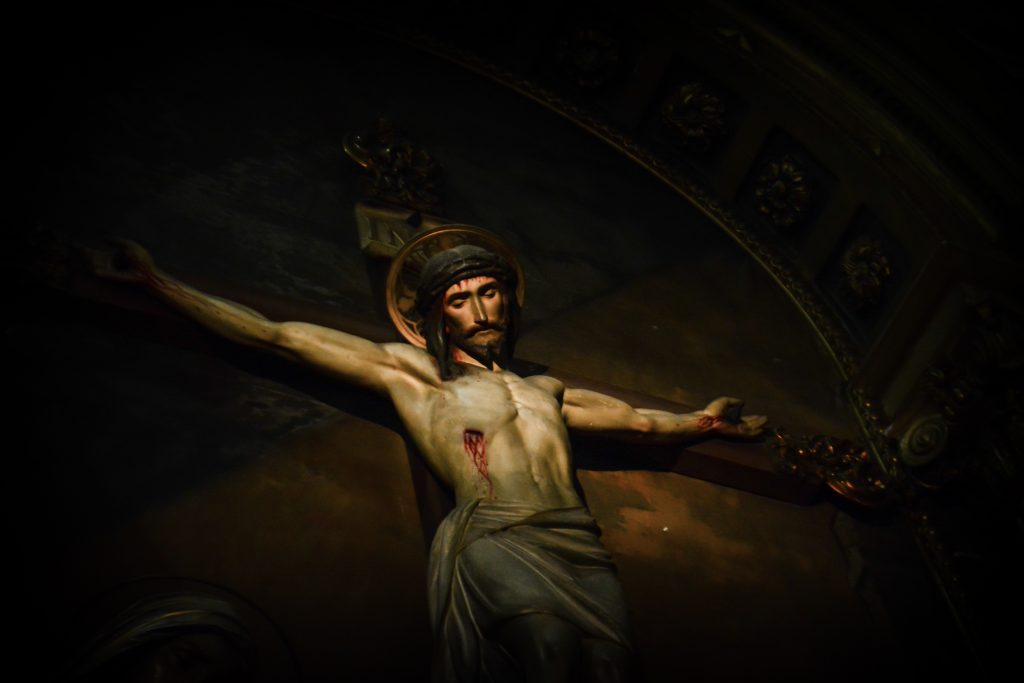Thanks be to God for Lent!
I know what you might be thinking: Haven’t we been living Lent for a year? With the COVID-19 pandemic keeping people at home, sometimes without the sacraments and often in fear and even despair, it has felt a lot like Lent, even as liturgical seasons have come and gone. But Lent isn’t a feeling. It is an invitation to mercy and action.
All of that darkness all around that seems to be suffocating and strangling people? It’s a clear call to be God’s light. Now is the time to take those feelings and bring them to God with a rededication to what it means to be Christian.
Lent isn’t giving up chocolate or beer or even praying more. It’s an opportunity to finally become who we are meant to be as Christians. That requires vulnerability and rigor. Now is the time to get to know what penance and reparation are all about. They are acts of faith and love. They help us live “Jesus, I trust in you.”
Here’s how St. Caesarius of Arles (A.D. 470-542), one of the lesser-known of the Church Fathers, said in a sermon that it is in fact “through the mercy of God the season of Lent is approaching.”
The days of Lent, the French saint told his flock, are “salutary for bodies and healing for the soul” and are meant to “lead to progress for us and not judgment.”
After a year in which instead of slowing down, many of us tried to be more productive, become indispensable at work, demonstrate our usefulness, looked for all kinds of escapes from a reality we fear, his words are as pertinent as they were when he first preached them:
“For if we lead a careless life, involving ourselves in too many occupations, refusing to observe chastity, not applying ourselves to fasting and vigils and prayers, neither reading Sacred Scripture ourselves nor willingly listening to others read it, the very remedies are changed into wounds for us. As a result of this we shall have judgment, where we could have had a remedy.”

Lent is a time we can’t afford not to take advantage of. Get to be friends with saints who will intercede for you. Take a half-hour each day during Lent to read the Catechism of the Catholic Church, so you can talk about what you believe with more confidence. But most importantly, remember what it means to be Catholic or learn it for the first time by really meditating on Christ on the cross.
Doesn’t every kind of suffering make more sense when we continuously think about what Jesus did for us? We complain about so many little things, and can find the bigger ones unbearable. But what did he bear? The greatest injustice there ever was. God comes for us in complete love and gets brutally killed for it.
And yet that love is victorious. Do we really truly believe that? If we do, we have no reason to be afraid, because I don’t know about you, but I am plenty afraid about many things. By giving our fears — and ourselves — totally to God this Lent, we can discover a peace that only he can give.
I’m constantly reminded of a poem by Father John Duffy on the Annunciation that the late Archbishop of New York Cardinal John O’Connor liked to quote: “And nothing would again be casual or small.”
That phrase is what’s on the back of the medals worn by the Sisters of Life, the community of women religious he founded 27 years ago with a charism for protecting life. It’s an idea that guides their charism: to take nothing as casual or small.
Obviously, these sisters live this call in a way that is vocational, as brides of Christ called to this very specific life. But treating nothing as if it is casual or small would work toward undoing this “throwaway culture” that Pope Francis talks about so much.
How we ignore people on the streets, or are transactional with the people in our lives — always expecting something in return for our love — are symptoms of something deeper that God wants to heal this Lent, by calling us to prayer, to service, to make small acts of faith.
Perhaps no one describes this better than St. Caesarius, in his counsel about Lent:
“Devoting ourselves to God out of love for eternal life, during these days let us with all solicitude strive to repair and compose in the little ship of our soul whatever throughout the year has been broken or destroyed or damaged or ruined by many storms, that is, by the waves of sins. And since it is necessary for us to endure the storms and tempests of this world while we are still in this frail body, as often as the enemy wills to lead us astray by means of the roughest storms or to deceive us by the most voluptuous pleasures, with God’s help may he always find us prepared against him.”
After a year that has tested so many of us, we have a chance to ask him to burn away anything keeping us from him. Look around in your life at the things we say, do, and search for. Do they belong to him? If someone followed you around all day, would they know that you are a Christian?
For our failings, we have the sacrament of confession, which we can turn back to during this Lent, too. We can think of heaven, and how the pleasures here are nothing compared to eternity with God. Remembering that only God can satisfy our deepest longings, and that life is short, can help us reorder the priorities in our lives. And our Church. And our world.

